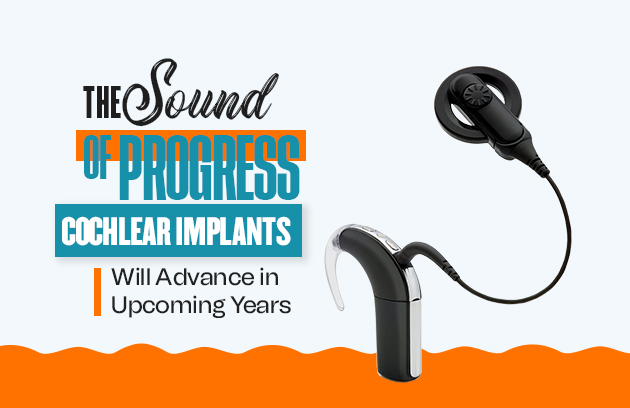- October 20, 2023
- admin
- Comment: 0
- blog, Cochlear Implants
The ability to hear is a precious gift that many of us often take for granted. For those with severe hearing loss or deafness, cochlear implants have been a remarkable technological breakthrough, providing a lifeline to the world of sound. However, as technology continues to evolve at an unprecedented pace, so do the possibilities for cochlear implants. In this blog, we will explore the exciting advancements on the horizon for cochlear implants and the potential they hold for transforming the lives of individuals with hearing impairments.
1. The Current State of Cochlear Implants:
Before delving into the future, it’s essential to understand the present. Cochlear implants have already come a long way, with millions of people worldwide benefiting from them. These devices work by bypassing damaged parts of the inner ear and directly stimulating the auditory nerve, allowing individuals to perceive sound.
2. Smaller, Sleeker, and More Comfortable:
One of the most promising advancements in cochlear implant technology is the drive to make these devices smaller, sleeker, and more comfortable. Miniaturization of components and improved design will not only enhance aesthetics but also lead to greater comfort for users. Smaller implants may also mean less invasive surgical procedures.
3. Enhanced Sound Quality:
Advancements in signal processing algorithms promise to significantly enhance sound quality for cochlear implant users. This improvement could lead to clearer speech comprehension, better music appreciation, and a more natural auditory experience. The aim is to bridge the gap between what cochlear implants currently offer and the rich soundscapes enjoyed by individuals with normal hearing.
4. Wireless Connectivity and Integration:
The future of cochlear implants is undoubtedly wireless. Integration with smartphones and other smart devices will allow users to adjust settings, stream audio directly to their implants, and even participate in phone calls or video chats with ease. This level of connectivity will offer greater convenience and accessibility in an increasingly digital world.
5. Biotechnology and Regeneration:
Beyond the realm of traditional cochlear implants, researchers are exploring cutting-edge biotechnology approaches. This includes exploring ways to regenerate damaged hair cells in the inner ear or develop biological interfaces that can communicate directly with the auditory nerve. While these approaches are still in their infancy, they hold immense promise for the future.
6. Personalized and Adaptive Solutions:
Advancements in artificial intelligence (AI) and machine learning will allow for highly personalized and adaptive cochlear implant systems. These systems can continuously adjust to an individual’s specific hearing needs, optimizing their hearing experience in various environments and situations.
Conclusion:
The future of cochlear implants is incredibly bright. As technology continues to advance, these devices will become more accessible, comfortable, and capable than ever before. The goal is not just to restore hearing but to provide a rich and fulfilling auditory experience that brings individuals with hearing loss closer to the world of sound.
In the coming years, expect to witness a revolution in the field of hearing restoration. Cochlear implants will not only transform the lives of those who use them but also contribute to a more inclusive and connected society where everyone can fully participate in the symphony of life.

